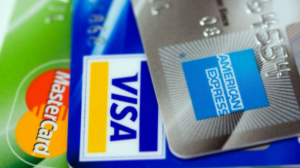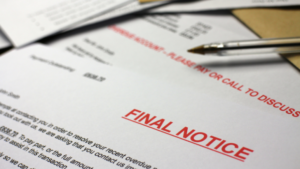
Secured vs Unsecured Debt – What’s the Difference?
Before you take out any loans or credit cards, you should understand the difference between secured and unsecured debt. One requires collateral and the other doesn’t, but they both can affect your credit score negatively if you aren’t careful.
Whether you need a debt reduction or you are thinking about taking out new credit, understanding the consequences of each type of debt is important as both types of debt have different consequences on your credit score and ability to take out loans in the future.
What is Secured Debt?
Secured debt has collateral. For example, if you take out a mortgage, your house is the collateral. If you don’t pay your mortgage, you risk losing your house – it’s the secured part of the loan.

Lenders are more lenient with secured debt because they know they have a backup if you stopped making your payments. They evaluate the collateral before they will give you the loan, though, to ensure that what you’re promising as the collateral is worth at least as much as the loan amount.
Types of Secured Debt
There are many different types of secured debt, but the most common secured debt Canadians carry are the following.
- Mortgage
Like we said above, a mortgage is secured by the property you used the mortgage to buy. Mortgage debt has monthly or bi-weekly payments and it’s paid over a specific term. You’ll know the interest rate, terms, and prepayment penalty (if any) before you sign the paperwork to take out a mortgage.
- Car loan
A car loan is also secured by the car you buy. Typically, lenders require you to put money down on the car as your investment and they make up the difference. The car must be worth at least as much as the bank lends you in case you stop making your payments. If you default on the loan, the lender will repossess your car and sell it to make up for the payments.
- Personal loans
Some personal loans are secured. If you secure your personal loan with collateral, you may get a lower interest rate or better terms because banks take a lower risk when there is collateral on the loan that they could sell to make up for the loss.
What are the Consequences if you can’t Pay your Secured Debt?
If you don’t pay your secured debt, you stand to lose the collateral used to get the loan. For a mortgage, you’d lose your house and for a car loan you’d lose your car.
Not only do you lose your assets, but you damage your credit too. Late payments hurt your credit a lot, especially if you get to the point of default which hurts your credit even more.
Unlike unsecured debt, you cannot consolidate secured debt to make it more affordable or to negotiate with creditors.
What is Unsecured Debt?

Unsecured debt doesn’t have the guarantee of collateral like secured debt. If you default on your unsecured debt, the lender doesn’t have anything to fall back on.
Unsecured debt usually has higher interest rates or tougher qualifying requirements because of the risk of default. Lenders want to make sure you can pay back the debt without any issues.
Types of Unsecured Debt
There are many types of unsecured debt consumers can have including the following.
- Credit cards
Credit cards are one of the most common types of unsecured debt that lead Canadians to credit counseling or even a consumer proposal. You don’t need to put up any collateral and you get a credit line that you can keep using and only make the minimum monthly payments.
- Student loans
Canada student loans are another common source of unsecured debt. The average student leaves college with thousands of dollars in loans that can take many years to pay off. While there are Repayment Assistance Plans available to those who struggle, they can still be hard to afford and/or ruin your credit if you don’t pay them back.
- Payday Loans
Payday loans are meant to ‘bridge’ your finances between paydays. They’re meant for emergencies, such as sudden car repairs or an unexpected home repair. Payday loans have high interest rates and fees, so be careful before choosing it and try to exhaust all other options first.
Payday loans have interest rates as high as 400%, which is much higher than any allowed interest rates on credit cards and loans. It’s an annualized interest rate, but you can only borrow the money from one payday to the next.
If you don’t pay back your payday loan on your next payday, you’ll incur even more fees and interest, making it nearly impossible to get out of this debt, causing a revolving visit on every payday.
- Line of Credit
If you have good credit, you may be eligible for an unsecured line of credit. It works much like a credit card, giving you revolving access to your funds. Interest rate is usually lower than a credit card. You can use the funds however you want, and must make interest payments on the amount you used monthly. You can also pay back the principal. If you do, you can reuse the funds in the future. Unsecured lines of credit are harder to qualify for though, because there’s no collateral for the bank to use if you default.
What are the Consequences if you can’t Pay your Unsecured Debt?

If you can’t pay your unsecured debt, the lender has nothing to take from you. This leaves them with one option – send your debt to a collection agency. Lenders usually wait to see if they can work out a deal with you to get you to pay them back, but that’s not always the case. If they send it to a collection agency, it can hurt your credit even more.
It’s best to know what options are best for you, with a reputable credit counsellor who can help you work out a customized repayment plan for all unsecured debts and stopping all interest, making it easy to pay on a monthly basis within budget.
Canadians commonly use a consumer proposal when they get in over their head in unsecured debt and can’t get out of it. This is a good option for consumers with debts up to $250,000 and can prove they can afford the proposed amount for the next 3 to 5 years.
Final Thoughts
Understanding the consequences of secured and unsecured debt is important. No matter the type of debt you take out, only take out what you can afford to repay. Getting in over your head in credit card debt can lead to default payments and damaged credit scores. Options such as a consumer proposal or bankruptcy can help you become debt-free fast.
If you’re already in over your head in debt, call the professionals at EmpireOne Credit to get the help you need. Our caring professionals will walk you through your options and help you get out of debt and join the many other Canadians who have achieved the financial freedom that they deserve.
Call us today at 416-900-2324 to learn more!





